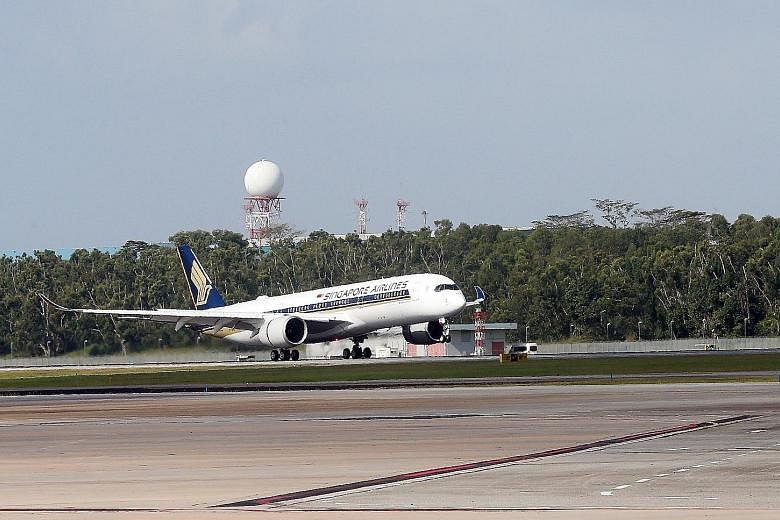Singapore Airlines (SIA), South-east Asia's biggest carrier, extended some of its fuel-hedging contracts to as long as five years, betting on an upswing in crude oil prices amid Opec production cuts and renewed tensions between the United States and Iran.
The airline, which reported a 36 per cent drop in profit for the three months through December, said on Tuesday that it has entered into longer-dated fuel hedges with maturity extending to 2022.
The company used to hedge only for a maximum period of 24 months, according to spokesman Nicholas Ionides.
"Clearly they are taking a view that oil prices will gradually go up," said Maybank Investment Bank analyst Mohshin Aziz. "It's out of their norm as they usually do it 18 months forward. I don't think it's a bad move."
SIA, which is battling overcapacity and aggressive pricing by budget airlines in the region, is seeking to cut costs as passenger yields - a key measure of profitability in the industry - continue to be under stress. Jet fuel accounted for 26 per cent of the company's total expenditure last quarter, making it the single biggest cost.
Brent crude, trading at US$54.76 a barrel, has gained about 8.5 per cent since major oil producing nations agreed last December to trim output, while the policies of US President Donald Trump have fuelled uncertainty over prices.
SIA shares rose 0.8 per cent to $9.80 yesterday, paring the airline's losses in the past year to 12 per cent.
"Fuel prices have trended upwards since the last quarter and are expected to remain volatile as uncertainty lingers around global oil production," SIA said in a statement on Tuesday. "The group regularly reviews and adapts its fuel-hedging policy to manage volatility in fuel prices."
For the current quarter, the airline said it has hedged about 37 per cent of its jet fuel requirements in Singapore Jet Kerosene at a weighted average price of US$67 a barrel.
Its longer-dated Brent contracts extend to 2022, covering between 33 and 39 per cent of its projected annual consumption at an average of US$53 to US$59 a barrel.
"Only time will tell but I think they did it in a safe manner," Mr Mohshin said. "It's only one-third. If they are wrong, they're only partially wrong. They're not humongously wrong."
US policies on trade, new tensions with Iran and doubts whether major oil producing nations will curb output as pledged have kept investors on tenterhooks.
Brent crude may fluctuate between US$52 and US$62 a barrel this year, according to Mr Kho Hui Meng, head of the Asian arm of Vitol Group, the world's biggest independent oil trader.
BLOOMBERG

